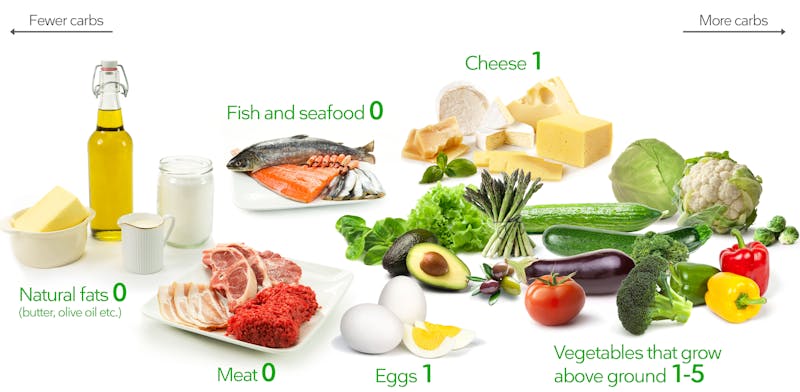
Here are some of the highlights of what science has found so far. Heathy diet in adults. Energy drinks Fat grams Fiber: Soluble or insoluble? The theory behind the Flexitarian flexible vegetarian diet is that you don’t have to eliminate meat entirely to reap the health benefits associated with vegetarianism—you can be a vegetarian most of the time but still enjoy a burger or steak when the craving strikes. Weight Loss. Scientific studies now prove that compared to other diets, low-carb or keto diets are often more effective for weight loss even when many of the studies do not recommend counting calories . It shows how quickly each food affects the glucose sugar level in your blood when that food is eaten on its own. These foods are much higher in carbs. Unless you have a diagnosed health condition, such as wheat allergy, wheat sensitivity or coeliac disease, there’s little evidence that cutting out wheat and other grains from your diet will benefit your health. Foods high in fibre add bulk to your meal and help you to feel full. Take 3 steps Nutrition Facts label Nutrition rules that will fuel your workout Nuts and your heart: Eating nuts for heart health Omega-3 in fish Omega-6 fatty acids Phenylalanine Play it safe when taking food to a loved one in the hospital Protein: Heart-healthy sources Healthy eating plans Raw water: Risky fad?
This content references scientific studies and academic research, and is fact-checked to ensure accuracy. Our team of licensed nutritionists and dietitians strives to be objective, unbiased, and honest. We are committed to bringing you researched, expert-driven content to help you make more informed decisions around food, health, and wellness.
Back to Healthy weight. The idea that “carbs are bad” has left many people confused about carbohydrates and their importance for our health, including maintaining a healthy weight. Carbohydrates a broad category and not all carbs are the same. It’s the type, quality and quantity of carbohydrate in our diet that’s important. There is strong evidence that fibre, found in wholegrain versions of starchy carbs, for example, is good for our health. Carbohydrates are 1 of 3 macronutrients nutrients that form a large part of our diet found in food. The others are fat and protein. Hardly any foods contain only 1 nutrient, and most are a combination of carbohydrates, fats and proteins in varying amounts. The type of sugars that most adults and children in the UK eat too much of are called free sugars. These are sugars that are added to food or drinks, such as biscuits, chocolate, flavoured yoghurts, breakfast cereals and fizzy drinks.
This reputation stems from the fact that the foods with simple, refined carbs are easier to overeat than other good, complex carbs full of fiber and other nutrients. Foods with sneaky sources of carbs a. They’re easier to overeat because they get readily absorbed into your bloodstream. Dairy products also provide protein in addition to carbs from the naturally occurring sugar lactose. So how many carbs do we really need? And the more we can choose nutrient-dense foods, the easier it is to actually feel satisfied — and want less of the not-as-nutritious carbs that find their way into our day in sneaky ways. Plus, research has linked beta-glucan, a type of soluble fiber found in oats, to lowering cholesterol. Quinoa is a grain rich in protein, fiber, vitamins, and minerals. What gives it the nutritional leg-up compared to other grains? These all-important helpers assist in converting the food you eat to the fuel you use for energy.
